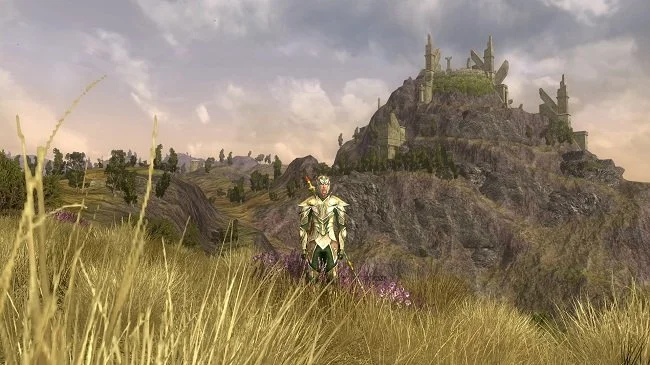LOTRO: What You See Is What You Get
As many of us suspected, the proposed “remaster” of the MMORPG The Lord of the Rings Online has been formally cancelled. Daybreak boss Ji Ham touched upon this project in EG7’s latest investors pitch video and stated that the proposal was a poor return on investment. The estimated cost of $30 million could well be spent more effectively elsewhere, possibly the development of new games. As a console release of LOTRO would be dependent upon a remaster, I think it is safe to say that idea is similarly no longer an ongoing concern. Sadly, it would appear that all the ideas regarding LOTRO that were floated during Robin Flodin’s tenure as EG7 CEO, have now all been quashed. It will be interesting to see if developers Standing Stone Games push ahead with support for 4K gaming and revisions to the game’s GUI or whether that also will be abandoned.
16 years on from its launch LOTRO remains a money-making concern due to its relatively stable playerbase. The licensing arrangement is as secure as it can be and so the game continues. There is an ebb and flow to player engagement with LOTRO, usually centred around the release of new content. The release of Amazon Prime’s The Lord of the Rings: The Rings of Power certainly produced a spike in activity around the MMO. This will no doubt happen again when the next update is released. However, LOTRO appears to have a finite capacity to yield revenue and as a result of this fiscal limitation, it would appear that Daybreak has no interest investing any further in the game. Hence the scope of future development for LOTRO is fixed. The MMO will continue to get new updates, expansions and monetised content. But there will not be anything outside of existing parameters.
Having played LOTRO since 2008, the game has changed significantly over the years. It has tried to embrace some of the attributes of modern MMOs and that has not been to everyone's liking. However, the loyal, steadfast, playerbase yields sufficient revenue to keep the lights on. It reminds me of a popular TV show that maintains an audience and so gets continued funding but never enough to break out of its creative lane. The steady release of new story content, new classes and races is sufficient to keep loyalists engaged. But the “more of the same” business model is also the reason why a percentage of players leave. New players arrive to find a dated game that offers a huge amount of old school, progressive, narrative content that they need to catch up on. However, it is clear now that this is the way LOTRO is going to be until the servers are closed. These are the terms that you play the game.




























